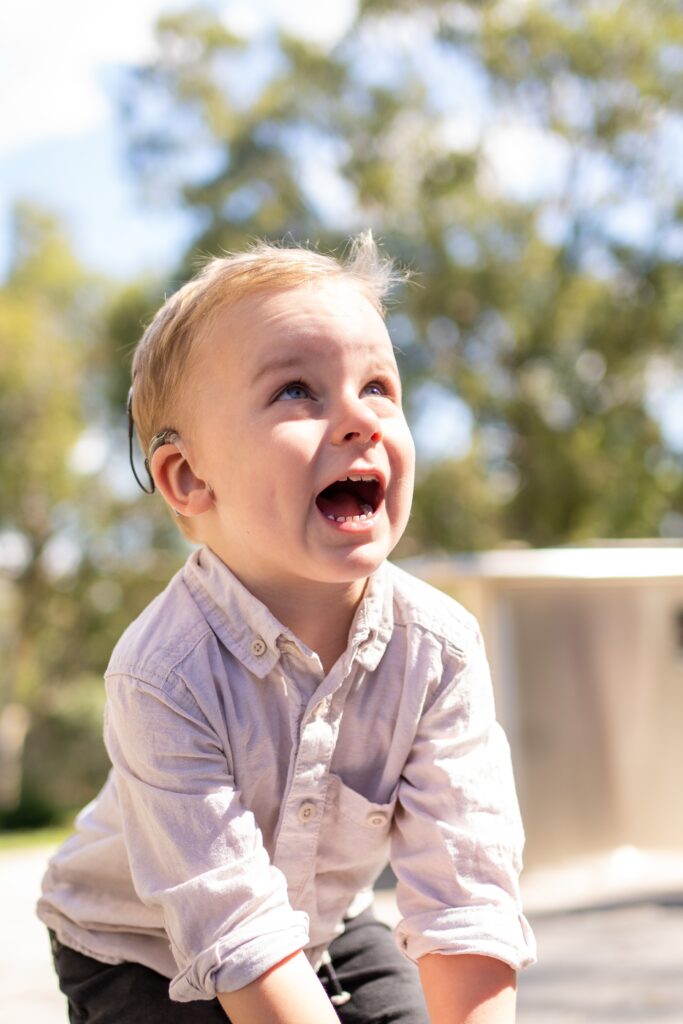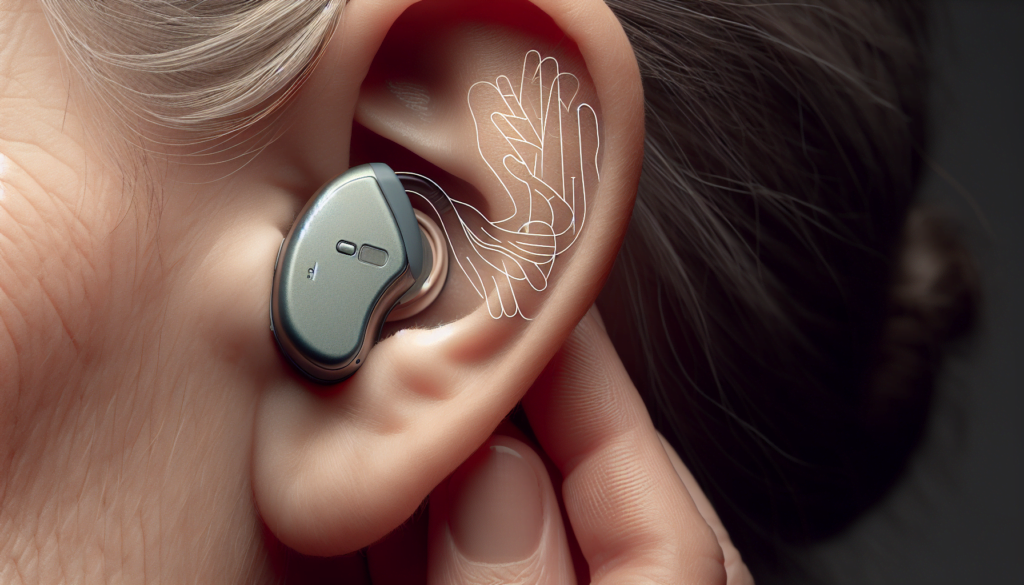Let’s talk about something that affects many individuals around the world – unilateral hearing loss in one ear. It may sound like a minor issue, but for those experiencing it, the effects can be significant. In this article, we will explore the causes, symptoms, and treatments for unilateral hearing loss, shedding light on the challenges faced by individuals with this condition and offering insights into how we can support them. So, sit back, relax, and let’s dive into the world of unilateral hearing loss together.
Overview of Unilateral Hearing Loss
Definition of Unilateral Hearing Loss
Unilateral hearing loss refers to the condition where an individual experiences the loss of hearing in one ear while the other ear retains normal hearing abilities. This means that sounds can only be heard through one ear, leading to difficulties in sound localization and overall hearing abilities.
Prevalence of Unilateral Hearing Loss
Unilateral hearing loss is relatively common, with approximately 1 in 1,000 individuals being affected by this condition. It can affect people of all ages, from infants to adults. The prevalence may vary depending on the underlying causes and risk factors involved.
Causes of Unilateral Hearing Loss
Unilateral hearing loss can be caused by various factors, including genetics, infections, trauma, noise exposure, and certain medical conditions. Congenital factors, such as inner ear abnormalities or genetic mutations, can result in unilateral hearing loss in children. In adults, sudden sensorineural hearing loss or head trauma can cause this condition.
Effects of Unilateral Hearing Loss
Impact on Sound Localization and Directional Hearing
One of the significant effects of unilateral hearing loss is the impairment of sound localization and directional hearing. Our ability to determine the origin and direction of sound heavily relies on the comparison of sound inputs from both ears. With only one functional ear, individuals with unilateral hearing loss struggle to accurately locate where sounds are coming from, leading to difficulties in discerning distance and direction.
Communication Difficulties and Speech Understanding
Unilateral hearing loss can also pose challenges in communication and speech understanding. The loss of hearing in one ear affects individuals’ ability to perceive and process speech sounds effectively. This can result in difficulties understanding conversations, especially in noisy environments, as well as difficulty following directions and participating in group discussions.
Psychosocial Effects
The psychosocial effects of unilateral hearing loss should not be overlooked. People with this condition may experience feelings of isolation, frustration, and embarrassment due to their hearing limitations. They may find themselves avoiding social gatherings or situations where hearing and communication are paramount, leading to potential impacts on their overall quality of life and emotional well-being.
Diagnosis and Symptoms
Common Symptoms of Unilateral Hearing Loss
Recognizing the symptoms of unilateral hearing loss is important for early intervention. Some common signs include difficulty understanding speech in noisy environments, turning one ear towards sound sources, having trouble localizing sounds, frequently asking others to repeat themselves, increased listening effort, and perceiving sounds as muffled or distorted.
Diagnostic Tests and Evaluation
If you suspect you have unilateral hearing loss, it is crucial to seek professional evaluation from an audiologist or hearing healthcare professional. They will conduct a series of diagnostic tests, such as pure-tone audiometry, speech audiometry, and tympanometry, to evaluate the extent and nature of the hearing loss. These tests help determine if the hearing loss is conductive, sensorineural, or mixed.
Distinguishing from Bilateral Hearing Loss
It is important to differentiate unilateral hearing loss from bilateral hearing loss, where both ears are affected. Unilateral hearing loss involves only one ear, while bilateral hearing loss affects both ears. The causes, impacts, and treatment options may vary between the two, underscoring the importance of accurate diagnosis.
Treatment Options
Hearing Aids
Hearing aids are a common and effective treatment option for individuals with unilateral hearing loss. They amplify sounds and transmit them to the functioning ear, improving overall hearing abilities and speech understanding. Binaural hearing aids, consisting of two devices, can help enhance sound localization and provide a more balanced hearing experience.
Contralateral Routing of Signals (CROS) Hearing Aids
CROS hearing aids are specifically designed for individuals with unilateral hearing loss. They consist of a microphone in the non-hearing ear that captures sounds and transmits them wirelessly to a hearing aid in the functioning ear. This allows individuals to hear sounds from both sides, improving speech understanding and enhancing sound localization.
Bone-Anchored Hearing Devices (BAHD)
For individuals with certain types of unilateral hearing loss, such as conductive or mixed hearing loss, bone-anchored hearing devices (BAHD) can be a viable option. BAHDs bypass the impaired ear by transmitting sound vibrations directly to the cochlea through bone conduction, effectively bypassing the affected ear.
Cochlear Implants
In some cases of severe or profound unilateral hearing loss, cochlear implants may be considered as a treatment option. Cochlear implants bypass the damaged or non-functional cochlea by delivering electrical signals directly to the auditory nerve, allowing individuals to perceive sound and improve speech understanding.
Auditory Training and Therapy
Auditory training and therapy programs can also be beneficial for individuals with unilateral hearing loss. These programs aim to improve speech perception and auditory processing skills, helping individuals adapt to their hearing loss and maximize their remaining hearing abilities.
Considerations for Children with Unilateral Hearing Loss
Impact on Language Development
Unilateral hearing loss in children can have significant impacts on language development. It can affect their ability to acquire speech sounds, vocabulary, and language skills. Early intervention through amplification devices, such as hearing aids, and appropriate therapy can help mitigate the potential language delays and provide support for optimal language development.
Educational Accommodations
Children with unilateral hearing loss may require certain educational accommodations to ensure effective learning. Accommodations may include preferential seating, use of assistive listening devices, captioning or transcription services, and communication strategies that optimize their learning environment. Collaboration with teachers, audiologists, and school administrators is crucial to develop individualized education plans for these children.
Effects on Social and Emotional Well-being
Unilateral hearing loss can impact children’s social and emotional well-being. They may face challenges in social interactions, feel isolated or excluded from group activities, and experience lower self-esteem. Encouraging open communication, providing support, and fostering a positive environment can help mitigate these effects and promote overall well-being.
Strategies for Coping with Unilateral Hearing Loss
Using Assistive Listening Devices (ALDs)
Assistive listening devices (ALDs) can be valuable tools for individuals with unilateral hearing loss. ALDs, such as personal FM systems, sound amplifiers, or loop systems, can enhance speech clarity and help overcome background noise in various listening environments. These devices improve sound transmission directly to the ear or hearing aids, facilitating better communication and speech understanding.
Making Environment Modifications
Modifying the listening environment can significantly improve the communication experience for individuals with unilateral hearing loss. Simple adjustments, such as reducing background noise, optimizing lighting to allow visual cues, and maintaining face-to-face communication, can enhance speech perception and overall understanding.
Seeking Support and Counseling
Seeking support and counseling can have a positive impact on individuals with unilateral hearing loss. Connecting with support groups or seeking individual counseling not only provides a space for expressing emotions and experiences but also offers valuable advice, coping strategies, and an opportunity to learn from others facing similar challenges.
Improving Communication Strategies
Developing effective communication strategies can greatly benefit individuals with unilateral hearing loss. Strategies such as facing the person while speaking, requesting repetition or rephrasing when needed, and actively engaging in conversations can enhance understanding and minimize communication difficulties. Education and training can help individuals develop and implement these strategies effectively.

Prevention and Support
Protecting Hearing in the Good Ear
Taking steps to protect the hearing in the functioning ear is essential for individuals with unilateral hearing loss. This includes implementing hearing protection measures, such as wearing earplugs or earmuffs in noisy environments, avoiding loud sounds or music, and seeking prompt medical attention for any ear-related issues.
Education and Awareness
Education and awareness are crucial in promoting understanding and support for individuals with unilateral hearing loss. By increasing awareness about this condition, its impacts, and available resources, we can foster a more inclusive and supportive environment for individuals with hearing loss.
Support Groups and Resources
Support groups and resources play a vital role in providing information, guidance, and emotional support for individuals with unilateral hearing loss and their families. Online platforms, local organizations, and professional networks can offer a wealth of resources, including educational materials, expert advice, and opportunities for connecting with others facing similar challenges.
Research and Advancements
Studies on Neural Plasticity
Ongoing research on neural plasticity has shown promising results in understanding the brain’s ability to adapt to unilateral hearing loss. Studies have demonstrated the potential for improved auditory processing and enhanced localization abilities through targeted sensory training and brain stimulation techniques. This research opens new doors for future rehabilitation approaches and interventions.
Emerging Technologies and Innovations
Advancements in technology and innovations continue to shape the landscape of hearing loss treatment. Exciting developments include advancements in cochlear implant technology, the use of artificial intelligence in hearing devices, and the exploration of binaural sound processing algorithms. These advancements aim to provide better hearing outcomes and improve the overall quality of life for individuals with unilateral hearing loss.
Improved Rehabilitation Techniques
Rehabilitation techniques have also evolved to better address the needs of individuals with unilateral hearing loss. Audiologists and therapists are employing comprehensive approaches that combine auditory training, speech therapy, and counseling to maximize hearing abilities, improve communication skills, and support psychosocial well-being.

FAQs about Unilateral Hearing Loss
Can Unilateral Hearing Loss be cured?
In most cases, the underlying cause of unilateral hearing loss cannot be cured. However, with appropriate treatment options, such as hearing aids or cochlear implants, individuals can significantly improve their hearing abilities and quality of life.
Can Unilateral Hearing Loss worsen over time?
Unilateral hearing loss typically does not worsen over time if the underlying cause remains unchanged. However, regular monitoring of hearing and seeking prompt medical attention for any changes or worsening of symptoms is recommended.
Is there a risk of bilateral hearing loss?
While unilateral hearing loss is the loss of hearing in one ear, there is a potential risk of developing hearing loss in the other ear. Regular hearing screenings and adopting protective measures for the functioning ear are essential to minimize the risk.
Can hearing loss in one ear affect balance?
While the loss of hearing in one ear does not directly affect balance, it can impact the perception of sound cues related to maintaining balance. Individuals with unilateral hearing loss may need to rely more on visual and other sensory cues to maintain balance.
Can hearing aids restore normal hearing in the affected ear?
Hearing aids cannot fully restore normal hearing in the affected ear. However, they can significantly improve hearing abilities and speech understanding by amplifying sounds and transmitting them to the functioning ear or hearing aid.
Conclusion
Unilateral hearing loss presents unique challenges for individuals, impacting their sound localization, communication, and overall well-being. However, with proper diagnosis, treatment, and support, individuals can overcome these challenges and lead fulfilling lives. Advances in technology, rehabilitation techniques, and research provide hope for further improvements in future interventions for individuals with unilateral hearing loss. By increasing awareness, fostering understanding, and providing accessible resources, we can create a more inclusive society that supports and empowers individuals with unilateral hearing loss.


